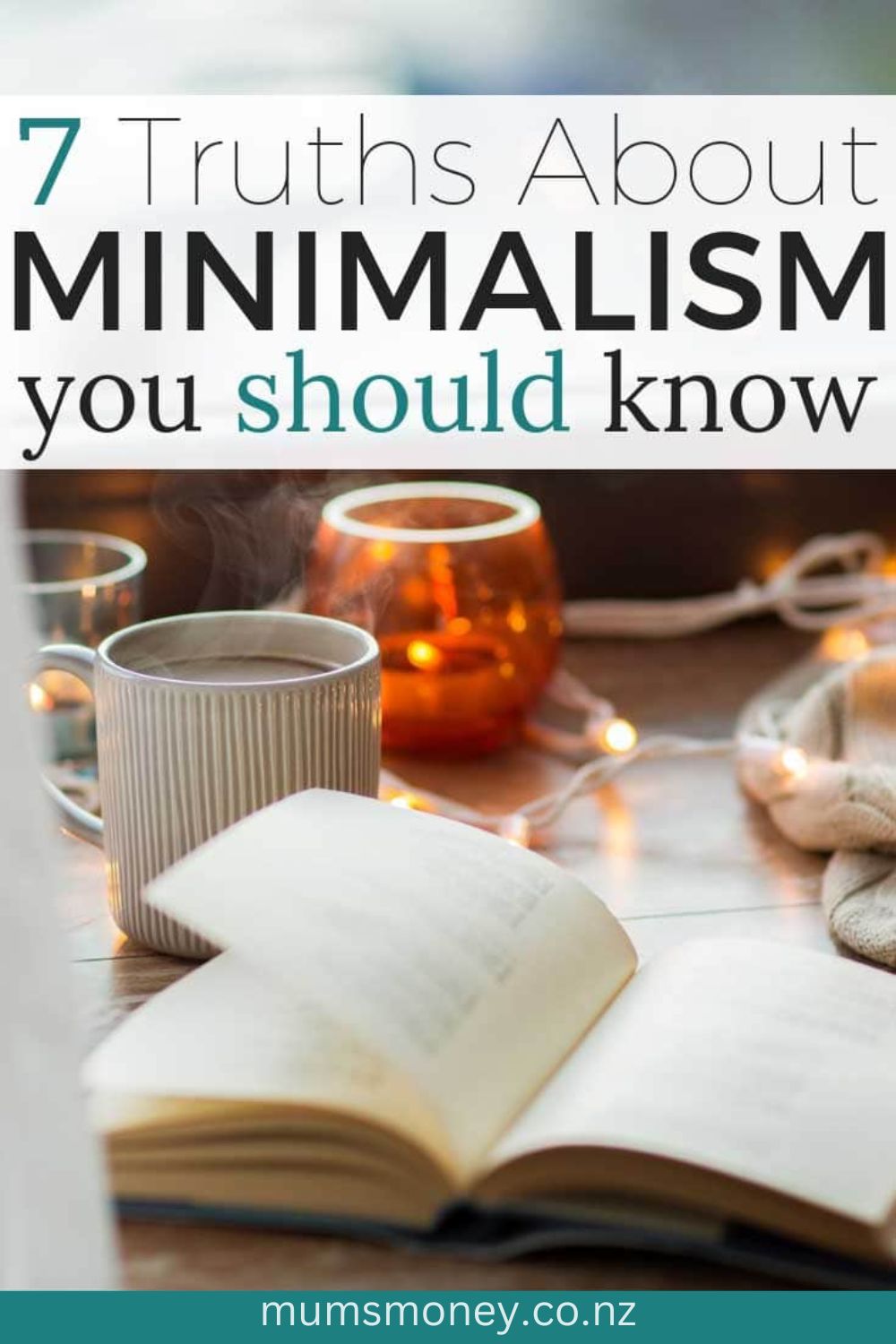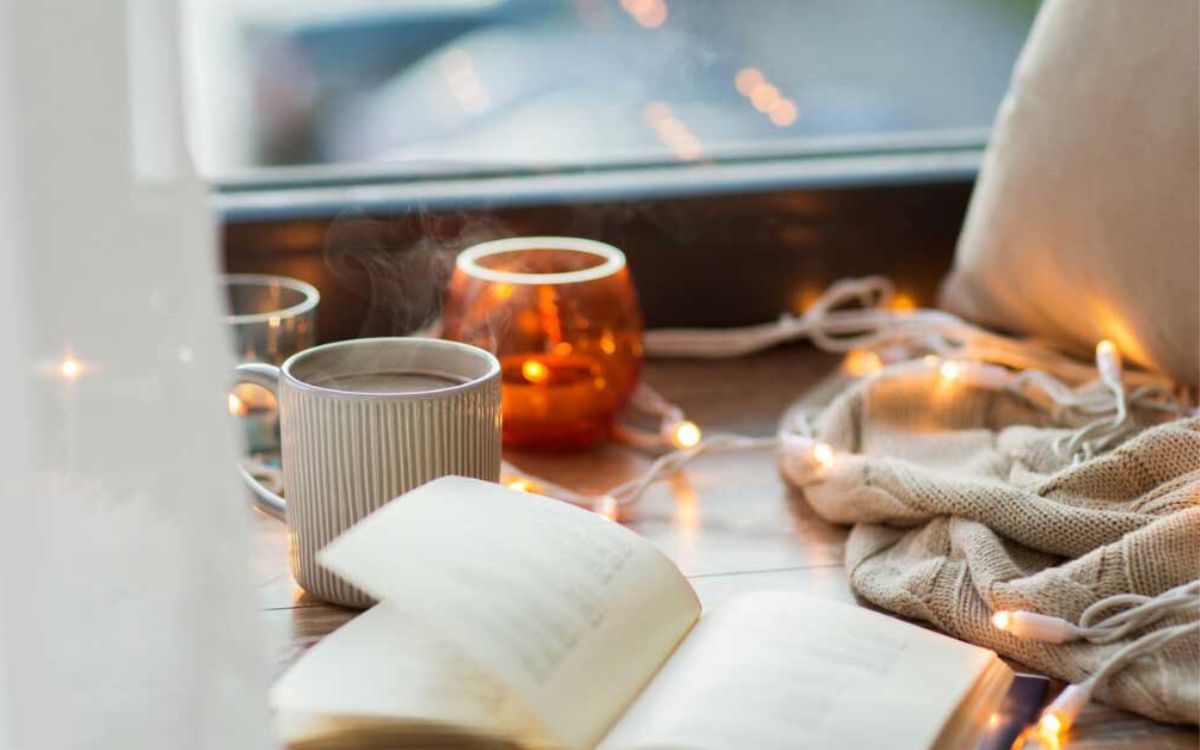
I feel like minimalism has got a bad rap lately. I’m reading about people struggling with minimalism, or even quitting minimalism altogether. And I kinda understand why.
There seems to be this idea that in order to ‘be a minimalist’ one needs to get rid of all their stuff and move into a tiny house with 3 books (literature, not trashy novels) and two potted succulents.
Now for some people, that might be ideal but for the rest of us, are we not minimalists if we have 38 teaspoons (guilty – my kids use so many freakin’ teaspoons) and a (tiny) wardrobe full of clothes(guilty again)?
I want to challenge the idea that minimalism is about getting rid of our stuff because, in actuality, that is just a tiny part of the concept.
Let’s get some things straight.
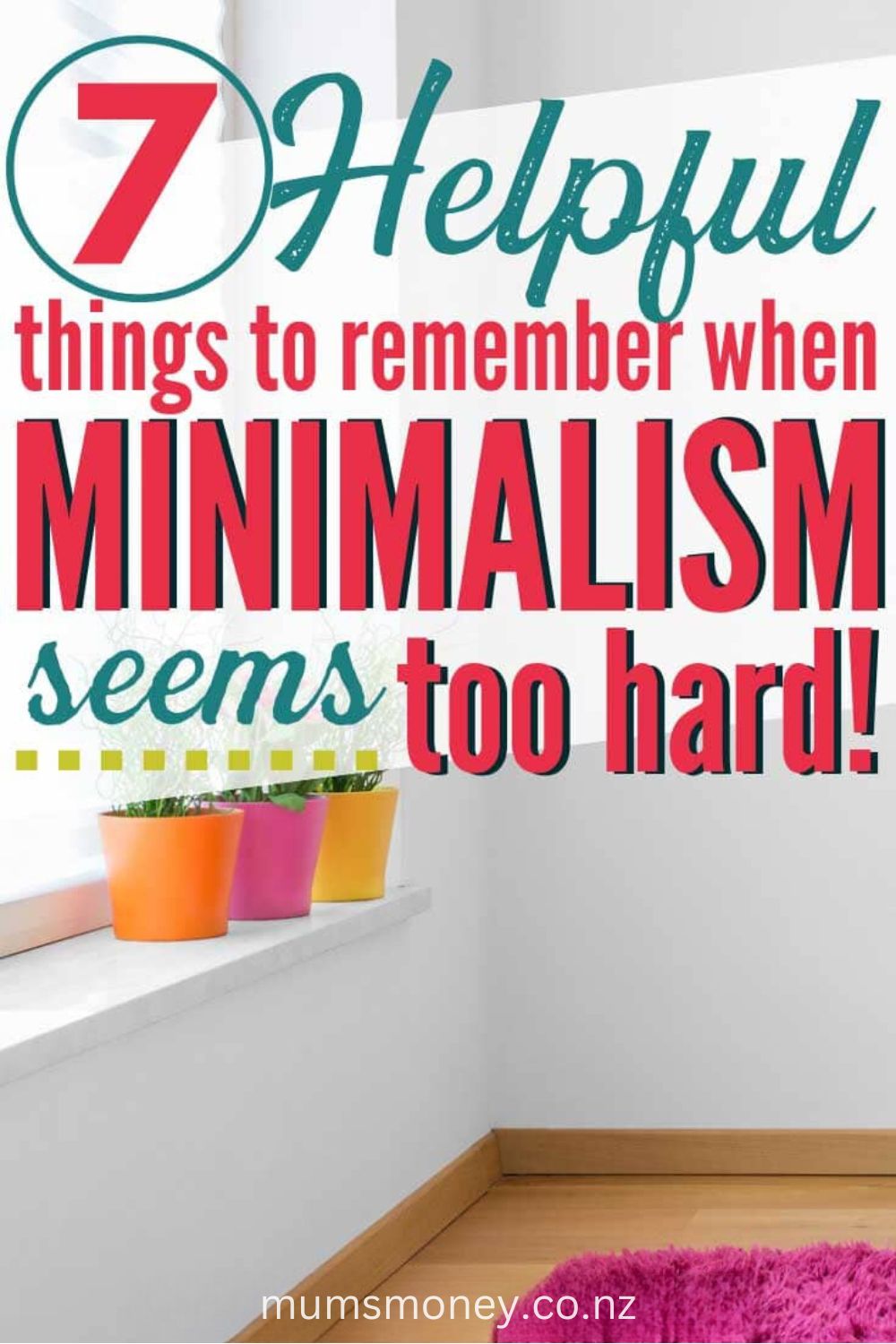
7 Minimalist Truths You Need to Know
Minimalism, as a concept, is not new. It has been around for centuries.
Some of the greatest thinkers of ancient times, Socrates, Marcus Aurelius and Plato, philosophized on minimalism.
So the idea of simplifying one’s life has appealed throughout the ages. Only now, we have blogs and websites dedicated to inspiring you to take action.
As the writer of one of those blogs, I feel it is my duty to address some of the misconceptions about minimalism and hopefully, allay some of your fears.
>> If minimalism is stressing you out or costing you money, then you’re doing it wrong. <<
1. Minimalism is not a prescription
There is no one-size-fits-all way to be a minimalist. You have to find the best way for you. Take the parts you like and ignore the rest.
Want an organized wardrobe – perhaps a capsule wardrobe is a great idea for you?
Want more money in your pocket each month? Downsizing your house is something to think about.
Wish you could spend more time with the kids? Quitting extra-curricular activities you find draining can give you more time back.
You don’t have to do it all.
I can’t find a single source anywhere that says you’re not a minimalist if you don’t get rid of everything in your life that you don’t use or love.
These are simply opinions of people who think a lot about this type of thing. Consider their opinions and apply them in a way you are comfortable with.
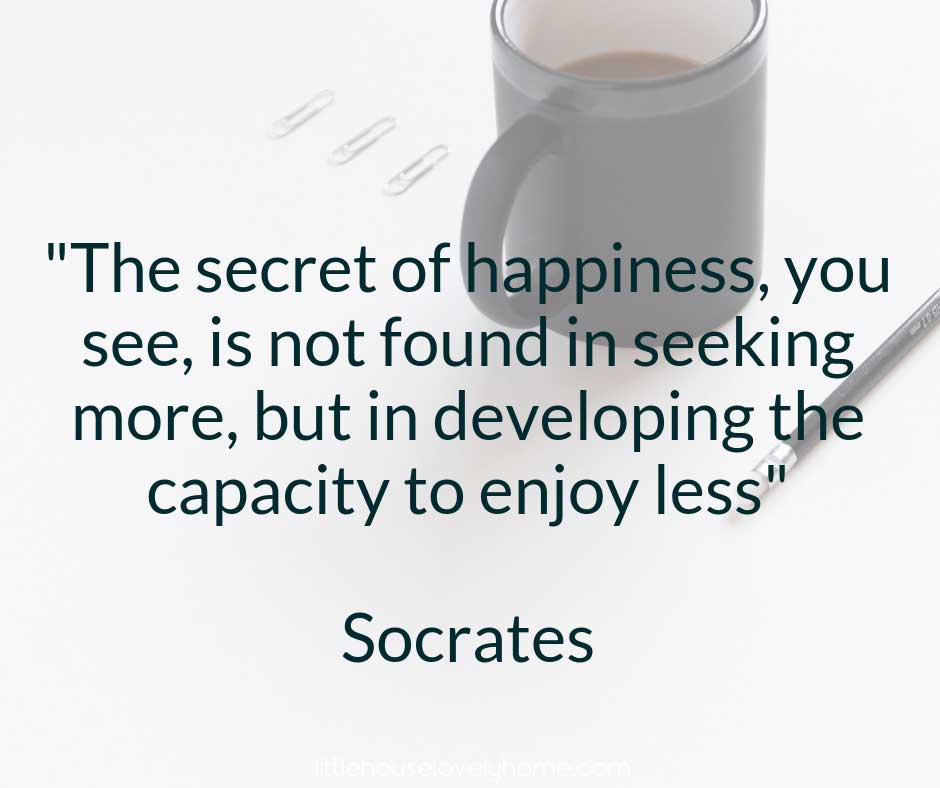
2. Minimalism is all about intention
Minimalism can be confronting because it forces us to look inside and seek out exactly what we want in life.
Stripped back, minimalism is about being intentional with your resources: money, time and energy (in all forms).
If like me, you’ve been one to let life happen to you, the entire concept of minimalism can be quite overwhelming.
How will we know what to get rid of, if we don’t even know what we want?
Taking the time to figure out what you want from life and then creating a plan to make it happen is a huge process and can change your attitude completely.
3. Minimalism is an ancient solution to a modern problem
Some of the most popular posts on my blog are about decluttering and downsizing possessions.
And whilst I am very grateful to have new readers (so very grateful, I really appreciate you), I wonder why this decluttering craze has peaked recently.
Are we so disconnected from our true selves that we honestly don’t know what to get rid of and what to keep?
How did we get to the stage where we have so much stuff that we have to consult the internet to help us pare it down?
I’ll tell you how – consumerism, cheap and easy credit, mass marketing and social media.
Minimalism is simply the antidote to all of these things.
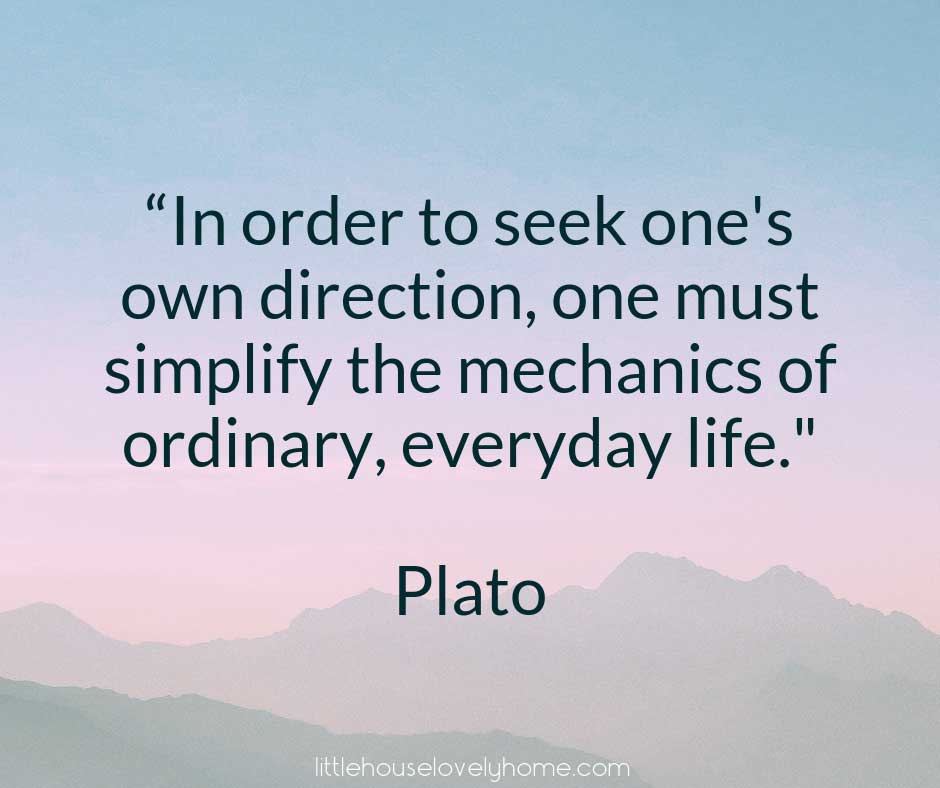
4. Minimalism has a much-less sexy brother: Frugality
Have you ever looked up the definition of frugal in the dictionary? It’s something like this: ‘economical in use or expenditure; prudently saving or sparing; not wasteful’ (source: dictionary.com)
Minimalism has a few different definitions – according to The Minimalists ‘Minimalism is a tool to rid yourself of life’s excess in favor of focusing on what’s important—so you can find happiness, fulfilment, and freedom.’
Becoming Minimalist’ focus on intention: ‘At its core, minimalism is the intentional promotion of the things we most value and the removal of everything that distracts us from it.’
Basically, minimalism = removing excess, frugality = spending less.
Don’t these things sound awfully similar to you? I consider frugality and minimalism to be concepts from the same family.
I’m frugal because I scrimp on the things I don’t consider important, spend money and time on the things that are and I’m a minimalist because I know the difference.
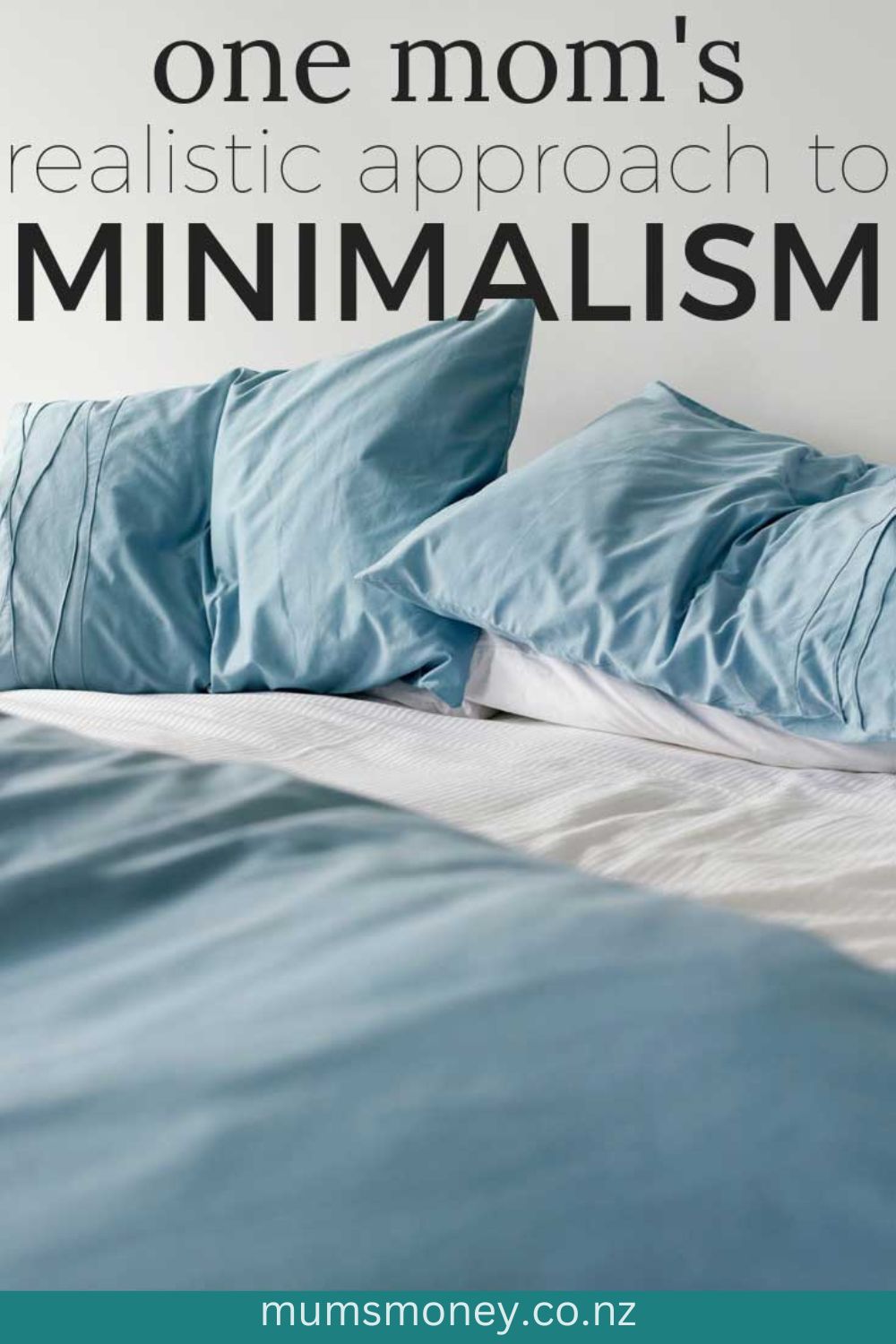
5. Minimalism can make your dreams come true if you let it
Whoa – hold the phone. Now that’s a big claim, Emma.
OK, I get that it sounds crazy, but each and every one of us is capable of living our dream life.
Lots of us create excuses around why we can’t chase that dream to sail around the world.
The kids need their own bathroom now they’re teenagers – my boss wouldn’t let me work remotely – we don’t have the cash to buy a boat.
Minimalism can help you focus on that goal or dream, and discard anything in your life that doesn’t help you achieve it.
Excess possessions, renovation plans, a 2-hour commute. All swept aside to focus on achieving the things you REALLY want from life.
6. Minimalism can apply to all facets of your life
Here are 2 real-life examples of minimalism that I’ve applied recently which have nothing to do with decluttering my teaspoons.
We decided to sell our big house as the stress and anxiety from managing it was taking over my life.
Selling removed a huge stressor from my day to day life, freeing up space for more enjoyable things and the extra cash helped us to pay off our small home.
I want to spend more time outside in nature, so I now bike to school with the kids instead of driving.
The extra time outside gives me time to think, reflect and sure as heck beats the battle to get my toddler in his carseat, the drive to school and the stress of finding parking.
To you, minimalism could mean signing up to a meal subscription service so you don’t have to think about dinner when you get home from work.
Instead, you can spend the extra time with your loved ones.
Minimalism can apply to your money too. It could mean starting a savings account just for family vacations (I totally recommend this).
It could mean creating a plan to eliminate debt from your life so you can work less.
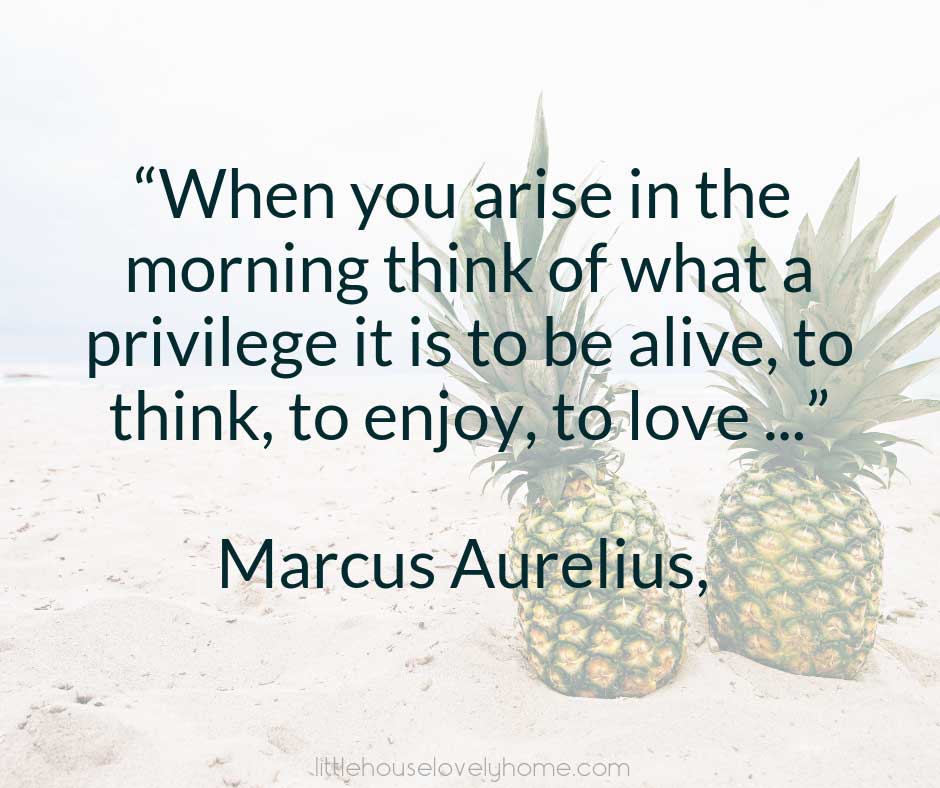
7. Minimalism is a mindset which anyone can adopt
You can be a minimalist right now. All it takes is a decision to prioritize the important things.
Instead of purchasing another pair of beautiful shoes you don’t really need, how about saving the price of them towards your dream trip to Paris.
Set some time aside in your busy schedule to just think. Go for a walk without headphones.
Figure out the thing you’d absolutely love – health, travel, more time with your family – and make it a priority.
You don’t need to quit minimalism if you have 38 teaspoons and no desire to downsize your home.
Just apply minimalism in a way that’ll enhance your life, ignore the parts that don’t suit you and live your best life.
Minimalism can be a passenger on your journey, but you are always in the driver’s seat.
